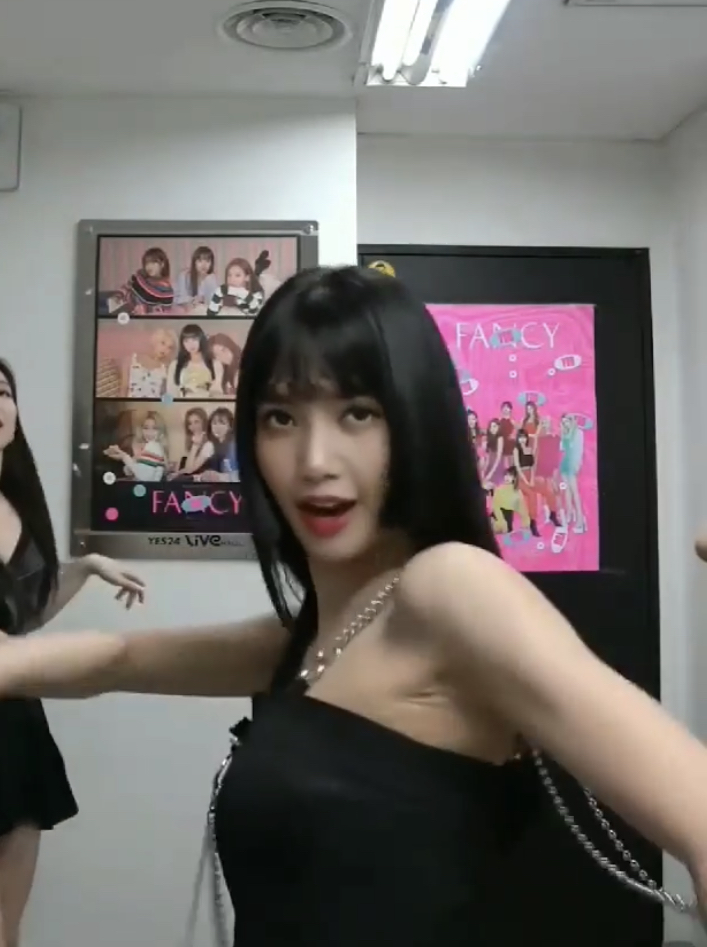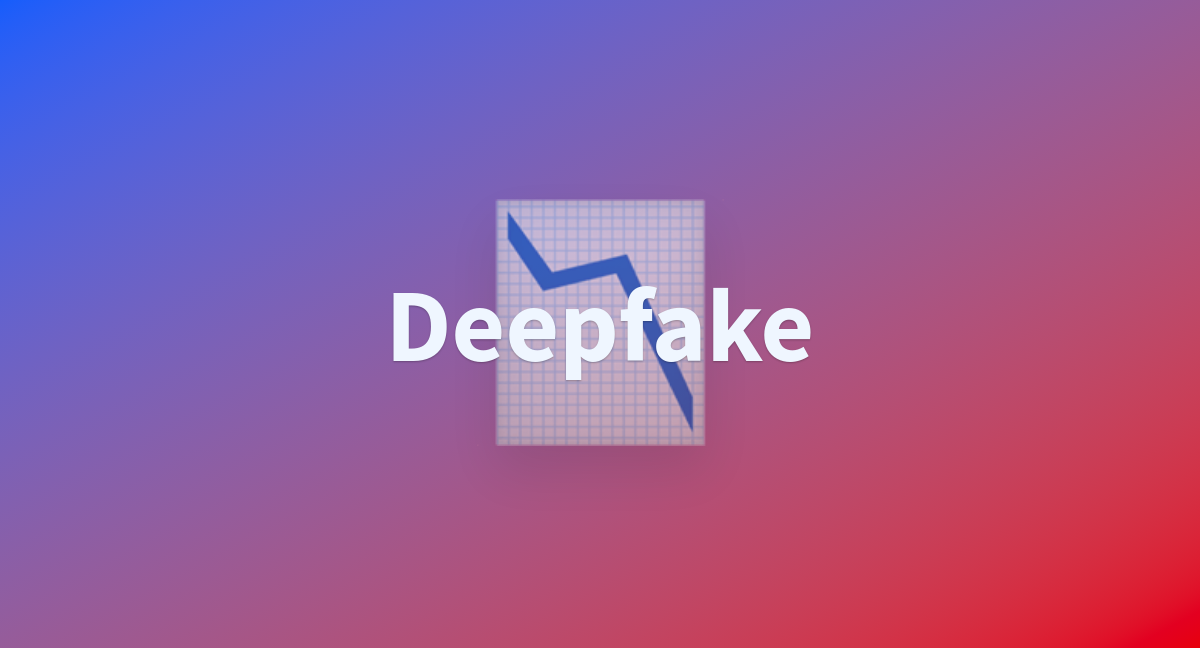Deepfake technology has taken the world by storm, and the K-pop industry is no exception. As a massive phenomenon sweeping across the globe, deepfakes have sparked both excitement and controversy within the K-pop scene. From creating realistic virtual performances to generating AI-generated K-pop stars, this technology is reshaping how we experience music and fandom. But is it all fun and games, or does it come with some serious concerns? Let's dive in.
Deepfake Kpop has become a buzzword in the music industry, captivating fans and professionals alike. Imagine your favorite K-pop idol performing a live concert from the comfort of your home—without even being physically present. That's the power of deepfake technology. But as with any groundbreaking advancement, there are two sides to the coin, and we'll explore both.
This article aims to provide you with a comprehensive understanding of deepfake Kpop, its implications, and its potential impact on the industry. Whether you're a die-hard fan or simply curious about the tech behind it, you'll find something here that'll keep you hooked. So buckle up and let's get started!
Read also:Unpacking Gali Golan Ofleaks The Untold Story Behind The Whistleblower Revolution
Table of Contents:
- What is Deepfake?
- Deepfake in Kpop
- Benefits of Deepfake Kpop
- Ethical Issues Surrounding Deepfake Kpop
- Impact on Fans
- How Deepfake is Changing the Kpop Industry
- Legal Considerations
- Future Trends in Deepfake Kpop
- Celebrity Implications
- Conclusion
What is Deepfake?
Deepfake refers to the use of artificial intelligence to create realistic but fake images, videos, or audio clips. The technology uses advanced algorithms to manipulate or replace human faces, making it seem like someone is saying or doing something they didn't actually do. In the world of entertainment, deepfake has opened up a whole new realm of possibilities, especially in the K-pop industry.
Deepfake technology isn't just about creating fake videos; it's about transforming how we interact with media. For instance, imagine a K-pop group releasing a music video where members appear to be performing in locations that would be impossible in real life. This kind of creativity is what makes deepfake so intriguing and appealing to fans.
How Does Deepfake Work?
The process behind deepfake involves machine learning models, specifically Generative Adversarial Networks (GANs). These networks are trained on large datasets of images or videos to learn patterns and features of human faces. Once trained, the model can generate new content that looks convincingly real. It's like teaching a computer to mimic a person's expressions and movements, but with a twist of AI magic.
While deepfake technology has its fair share of controversies, its potential applications in the entertainment industry are vast. Let's take a closer look at how it's being used in K-pop.
Deepfake in Kpop
Deepfake Kpop is a phenomenon that has gained immense popularity over the past few years. Fans and creators alike have embraced the technology to produce content that would otherwise be impossible. From virtual concerts to AI-generated music videos, deepfake is changing the game for K-pop artists and their fans.
Read also:Bert Kreischers Daughter Arrested The Untold Story You Need To Know
Examples of Deepfake in Kpop
- Virtual Performances: Imagine your favorite K-pop idol performing at a concert in another country without physically being there. Deepfake makes this possible by creating realistic virtual performances that look and feel authentic.
- AI-Generated Music Videos: Some creators have used deepfake technology to produce music videos featuring K-pop idols in scenarios that would be too expensive or time-consuming to film in real life.
- Reviving Past Performances: Deepfake can also be used to recreate iconic performances from the past, allowing fans to relive their favorite moments with enhanced visuals.
These examples highlight just how versatile deepfake technology can be in the K-pop industry. But as with any new technology, there are both positive and negative aspects to consider.
Benefits of Deepfake Kpop
Deepfake Kpop offers numerous benefits for both artists and fans. Here are some of the most significant advantages:
- Increased Creativity: Artists can experiment with new ideas and concepts without the limitations of traditional filming methods.
- Cost-Effective Production: Creating high-quality content using deepfake technology can be more cost-effective than traditional methods, allowing smaller artists to compete with bigger names.
- Global Reach: Virtual performances and AI-generated content can reach a wider audience, breaking down geographical barriers.
- Fan Engagement: Fans love seeing their favorite idols in new and exciting ways, and deepfake provides endless possibilities for engagement.
While these benefits are undeniable, there are also some concerns that need to be addressed.
Ethical Issues Surrounding Deepfake Kpop
As with any powerful technology, deepfake Kpop raises several ethical concerns. One of the biggest issues is the potential for misuse. For example, deepfake videos could be used to spread misinformation or create fake scandals involving K-pop idols. This could damage their reputations and even affect their mental health.
Addressing Ethical Concerns
To combat these issues, it's essential to establish clear guidelines and regulations for the use of deepfake technology in the K-pop industry. Artists and companies must ensure that any deepfake content they produce is clearly labeled as such to avoid confusion or deception. Additionally, educating fans about the technology and its potential pitfalls can help prevent misuse.
It's also important to consider the privacy implications of deepfake. Using someone's likeness without their consent is a serious violation of their rights. Artists and creators must always obtain proper permission before using deepfake technology to create content featuring real people.
Impact on Fans
Deepfake Kpop has had a significant impact on fans, both positive and negative. On one hand, it allows fans to experience their favorite idols in new and exciting ways. Virtual performances and AI-generated content provide endless entertainment and engagement opportunities. On the other hand, deepfake can also lead to confusion and misinformation, especially if fans are unable to distinguish between real and fake content.
Fan Reactions to Deepfake
Many fans have embraced deepfake Kpop with open arms, appreciating the creativity and innovation it brings to the table. However, some fans remain skeptical, worried about the potential for misuse and the impact on their favorite idols. It's crucial for fans to stay informed and critical when consuming deepfake content, ensuring that they're not being misled or deceived.
How Deepfake is Changing the Kpop Industry
The introduction of deepfake technology has brought about significant changes in the K-pop industry. From production methods to marketing strategies, deepfake is reshaping how artists and companies operate. Here are some of the most notable changes:
- New Production Techniques: Artists and producers are experimenting with deepfake to create content that was previously impossible or too expensive to produce.
- Innovative Marketing: Deepfake allows companies to create unique and engaging marketing campaigns that capture the attention of fans worldwide.
- Enhanced Fan Experience: Virtual performances and AI-generated content provide fans with a more immersive and interactive experience.
As the industry continues to evolve, it's likely that deepfake will play an even bigger role in shaping its future.
Legal Considerations
Deepfake Kpop raises several legal questions that need to be addressed. One of the biggest concerns is the issue of consent. Using someone's likeness without their permission is a violation of their rights, and legal action can be taken against those who misuse the technology. Additionally, deepfake content must be clearly labeled as such to avoid confusion or deception.
Protecting Artists' Rights
To protect the rights of K-pop artists, it's essential to establish clear guidelines and regulations for the use of deepfake technology. This includes obtaining proper consent, ensuring transparency, and addressing any legal issues that may arise. Artists and companies must work together to ensure that deepfake is used responsibly and ethically.
Future Trends in Deepfake Kpop
The future of deepfake Kpop looks promising, with new trends and innovations on the horizon. As the technology continues to evolve, we can expect to see even more creative and engaging content being produced. Here are some potential trends to watch out for:
- AI-Generated Idols: Some companies are already experimenting with creating entirely AI-generated K-pop groups, opening up a whole new world of possibilities.
- Interactive Content: Fans may soon be able to interact with their favorite idols in virtual environments, creating a more personalized and immersive experience.
- Augmented Reality: Combining deepfake with augmented reality could revolutionize how fans experience live concerts and performances.
These trends highlight the exciting potential of deepfake technology in the K-pop industry. As artists and companies continue to explore its possibilities, we can expect to see even more groundbreaking content in the future.
Celebrity Implications
Deepfake Kpop has significant implications for celebrities, both positive and negative. On one hand, it allows them to reach a wider audience and engage with fans in new and exciting ways. On the other hand, it raises concerns about privacy, consent, and the potential for misuse.
Protecting Celebrity Privacy
To protect celebrity privacy, it's crucial to establish clear guidelines and regulations for the use of deepfake technology. Artists must always obtain proper consent before using their likeness in deepfake content. Additionally, educating fans about the technology and its potential pitfalls can help prevent misuse and protect celebrities' rights.
Conclusion
Deepfake Kpop is a fascinating phenomenon that's reshaping the music industry in countless ways. From virtual performances to AI-generated content, the technology offers endless possibilities for artists and fans alike. However, it's essential to address the ethical and legal concerns surrounding deepfake to ensure it's used responsibly and ethically.
As the industry continues to evolve, we can expect to see even more innovative uses of deepfake technology in the K-pop scene. Whether you're a fan, artist, or industry professional, staying informed about the latest trends and developments in deepfake Kpop is crucial for navigating this exciting new landscape.
So what do you think about deepfake Kpop? Are you excited about its potential or concerned about its implications? Let us know in the comments below, and don't forget to share this article with your fellow K-pop fans!


